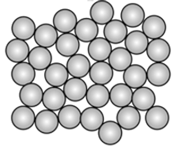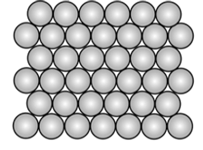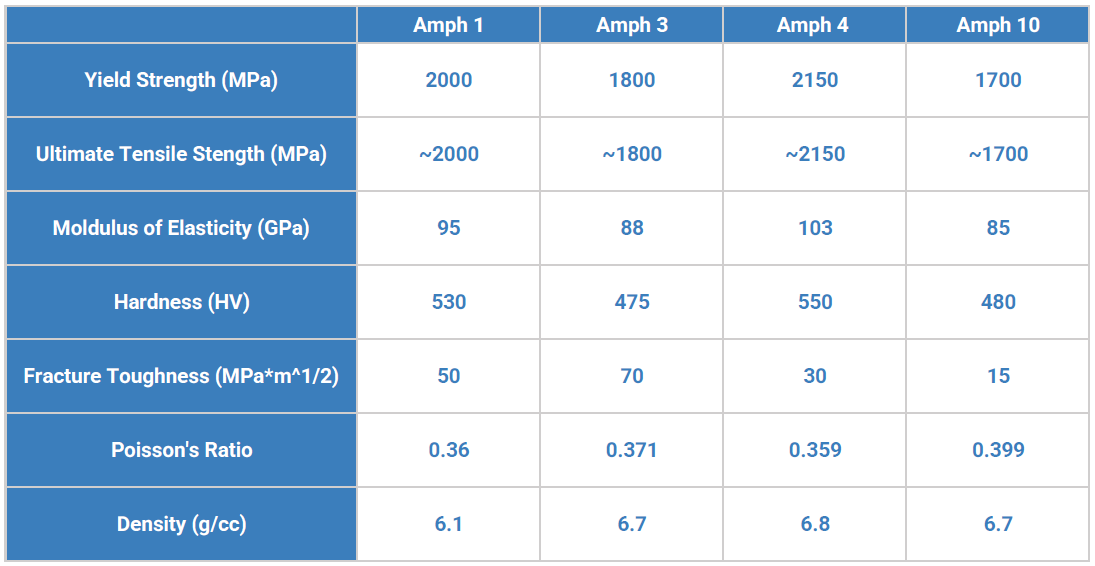WHAT IS BULK METALLIC GLASS (BMG)?
AMORPHOUS METAL
An amorphous metal, also known as bulk metallic glass (BMG) is a solid metal alloy with disordered atomic-scale structure. These metal alloys are special in that they have a unique ability to stay amorphous when cooling from their molten liquid phase to solid phase as long as they are cooled fast enough. The material structure of the alloy stays disordered, putting it in what’s called a glassy state. These alloys are composed of a special combination of metals that give them good glass-forming ability (GFA).
HISTORY
Bulk metallic glass was discovered in the 1960’s by Dr. Duwez at the California Institute of Technology here in Pasadena, not far from where Amorphology is located. Dr. Duwez first synthesized gold metallic glass by rapidly cooling a million degrees per second.
In the beginning, only small specimens of amorphous metal could be produced because of the fast cooling rates required. Over the next decade and into the 70’s, scientists eventually manufactured amorphous metal ribbons. These ribbons exhibited more efficient magnetic properties and are successfully used today for highly efficient transducer cores.
Entering the 90’s, NASA invents the first commercially viable “Bulk” metallic glass, defined as larger than 1mm in diameter. Over the last three decades, the growth of bulk metallic glass has increased up to the point where Amorphology could take advantage of commercial applications.
ADVANTAGES OF BMG'S
- High wear resistance & natural anti-galling properties
- Potential to use in some tribological applications without lubrication
- High scratch resistance
- Very strong corrosion resistance
- One of the most elastic metals
- Superior performance cryogenic environments
- Reduction of weight compared to steel
MANUFACTURING ADVANTAGES
- Injection mold net-shaped casting
- Almost zero shrinkage when formed
- Excellent surface finish as cast
- Easily adjust production quantity
- Reduction of cost-per part at scale manufacturing



